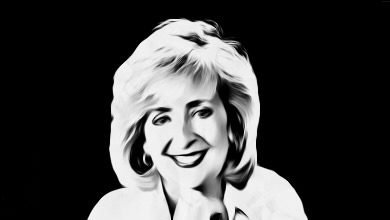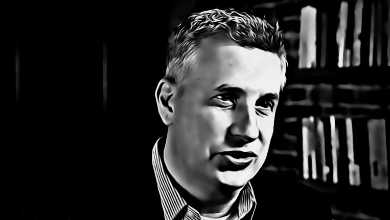Thoughts on a Milestone Birthday
Tomorrow, Aug. 2, 2023, I will be 75 years old.
Some thoughts on this milestone:
First, I feel no different — emotionally or physically — than I did 50 years ago. I was lecturing, traveling and writing then, and I’m lecturing, traveling and writing today. I started my public life at age 21, speaking around America after spending a month in the Soviet Union, and wrote my first book at the age of 25. If anything, I do considerably more today than I did 50 years ago.
This has led to an interesting problem. Precisely because I have the same energy and the same enthusiasm for life as I had 50 years ago, there is a huge chasm between my chronological age and my self-perception age. Perhaps the best way to explain this is by asking anyone under, let us say, 40 years of age to imagine that someone told them that they are not 35 years old, but really 75 years old.
That is how I feel. I know my chronological age, but nothing has changed in me that makes me believe it. So, then, while how I feel and my energy levels are a blessing, like many blessings, they come at a price: massive cognitive dissonance.
Second, I walk around on a gratitude high. That I am so healthy and happy; that people in different parts of the world still invite me to speak; that my wife, children, grandchildren and friends are all healthy and still love me — these all produce in me immeasurable and constant gratitude. I know very well how lucky I am. Many people my age are ill, many never got to this age, many have lost a child or a spouse, many are alienated from one or more of their children and many are lonely.
It is common for people who inordinately suffer to ask, “Why me?” Well, I, too, constantly ask, “Why me?” Why have I been inordinately lucky?
Third, the one change in my life is that I often think about death. When you are young, you intellectually know that you will one day die. But you don’t really believe it. So, you don’t think about death unless someone close to you dies, and then, after some time has passed, you revert to not thinking about death. But after a certain age, you can’t help but think about it. You start to peruse obituaries.
My thoughts about death are not morbid, and they contain no fear. I don’t know what there is to fear. There are three possible fates after we die.
One is that there is nothing and we return to the unconscious state we were in before we were born. Why fear that? It is not unpleasant.
A second is a pleasant afterlife.
The third is an unpleasant afterlife — hell, if you will.
I have always rationally believed in an afterlife. I say “rationally” because it is not theology that leads me to believe in an afterlife; it is reason alone. I believe in God (also for rational reasons), and it is axiomatic that if there is a just God, there is an afterlife.
Of the three propositions — there is a God, God is just, and there is an afterlife — only the second demands faith. That God exists is a rational proposition — far more rational than the atheist position that everything came about on its own. That if God is just, there is an afterlife is also a rational proposition. Given how much injustice there is in this world, a just, not to mention loving, God must provide a way for all this to be worked out after we die.
But I acknowledge that the belief that this God who created the world is just and loving is somewhat a leap of faith. Given the amount of unjust suffering there has always been in this world, I can understand someone arguing that the Creator is not loving. I can understand it, but I don’t believe it. A God who created creatures who can love is probably a loving God. Otherwise, human beings are far superior to their Creator, a possibility that is not probable.
So, I have no fear of death. But I am sad about it. I am sad for me — I really, really love life. And always have. But I am mostly sad for all those who love me.
Finally, I have reason — though of course no certainty — to believe that I will be here for a while. I am healthy, my parents died at 89 and 96, and my one sibling is 80 and healthy. In addition, I have everything that contributes to health and longevity: profound friendships, a wonderful marriage, a loving family life, wonderful children and grandchildren, a communal life and a vibrant religious life. And dogs.
Last year, the oldest World War II veteran, Lawrence Nathaniel “Honey” Brooks, died at age 112. When asked the secret to his longevity, he answered, “God and cigars.” If he was right, I should be around for a while.
Agree/Disagree with the author(s)? Let them know in the comments below and be heard by 10’s of thousands of CDN readers each day!




